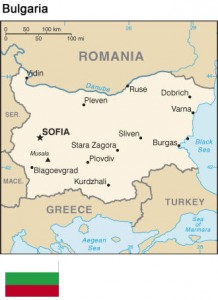Bulgaria Guarantees Kosovo Wheat Supply
By Petrit Collaku
Kosovo and Bulgaria have agreed a new deal over wheat imports which helps shift Pristina’s dependence on Serbian goods.
According to a report from the Bulgarian news agency Novinite, Thaci thanked the Bulgarian Minister of Agriculture and Foods Miroslav Naydenov for his country’s “readiness to provide Kosovo with food in the event of a shortage, and even to open its State Reserve for that.”
Kosovo’s agricultural minister, Blerand Stavileci said that Kosovo and Bulgaria will immediately start to work on removing administrative and custom barriers to the trade in food.

Until recently, around half of all wheat used in Kosovo comes from Serbia, a source which has now been cut off since Pristina imposed its controversial embargo last month.
“Bulgaria, one of the first countries that recognised Kosovo’s independence, expressed readiness to work more closely with us and we are aiming to do so with other regional countries as well,” Stavileci told Balkan Insight.
He said that the aim of the meeting with Bulgarian officials was to expand the agro-business so that Kosovo does not depend on too few markets.
“There should not be a dependency on one market, and particularly on Serbia,” he said. “we aim to look wider.”
A Bulgarian delegation led by agricultural and food minister, Miroslav Naydenov, and a group of businessmen visited Kosovo on Wednesday.
“In the name of the Bulgarian government, I guarantee that we will do everything possible to create better conditions for business between Bulgarian and Kosovan businesses,” Naydenov told Kosovo officials.
The Bulgarian minister of agriculture and food, Miroslav Naydenov, said that there are many businessmen interested in working in Kosovo.
“Now, we will help each other by removing all administrative obstacles and trade barriers,” said Naydenov.
Kosovo has heavily depended on wheat imports from Serbia, but Stavileci said that Bulgaria will also supply Kosovo with wheat in an emergency situation.
Since July 21, Kosovo imposed an embargo on products from Serbia and Bosnia and Herzegovina in response to the two countries refusal to abide by the terms of the Central Europe Free Trade Agreement, CEFTA, allowing for the free movement of goods in the region.
According to Kosovo’s customs statistics, imports from Serbia are worth around 290 million euro and 80 million euro from Bosnia.
Bulgaria is well placed to soak up the new demand for goods such as wheat and oils.
